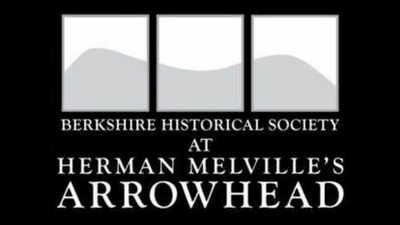Melville Symposium
PITTSFIELD, Mass. — The Berkshire County Historical Society celebrates Herman Melville's birthday with a symposium exploring a variety of topics including the Berkshires as inspiration, new research into primary sources, and Arrowhead as a source of inspiration for contemporary writers and performers.
Lectures take place at the Berkshire Athenaeum (1 Wendell Avenue, Pittsfield, MA) on Aug. 1 and are free and open to the public. A reception at Arrowhead (780 Holmes Road, Pittsfield, MA) follows.
Program
3-3:30 pm - John Dickson - Inspired by the Berkshires
From his first visit to Pittsfield as a young boy, the Berkshires captivated Herman Melville. “His first love,” is the way his cousin described his relationship to the setting. Whether he was seated at his writing table gazing north toward Mount Greylock or on the move around the county, Melville tapped into the Berkshires in his art. The places he visited are sprinkled through the pages. The mountains, the forest, the flowers, the lakes, the stones all make appearances. He wrote what he saw; and what he saw helped him compose.
John Dickson is a former board member of the Berkshire County Historical Society. He also serves on the Pittsfield Historic Commission, is a docent at Arrowhead and teaches classes at the Osher Lifelong Learning Institute. Dickson is a retired Foreign Service officer with the US Information Agency from 1984–1999 and with the US State Department from 1999–2010. He is the author of several books and articles that focus on history and foreign service.
3:30-4 pm - Warren Broderick - Allan Melville, Bartleby, and the Court of Chancery
Herman Melville's Bartleby, the Scrivener: A Story of Wall Street (1853), is considered by many to constitute one of the earliest pieces of existential literature. Bartleby's publication even predates Fyodor Dostoyevsky's landmark work, Notes From the Underground (1864).
Melville's sources for Bartleby's tragic story include brief articles on the so-called "Dead Letter Office" and a popular sentimental novel about an unfortunate law clerk. But the plot of Bartleby is inseparably connected to the state of New York's Court of Chancery in the 1840s.
Documents recently discovered in the Archives of the New York County Clerk reveal that Herman's younger brother, Allan Melville, worked with a Master in Chancery such as Bartleby's employer. This presentation will demonstrate how previously untapped sources, including original documentary materials, can still be discovered that shed new light on Herman Melville's life and the genus of his writing.
A senior archives and records management specialist at the New York State Archives, Warren F. Broderick has published extensively on topics including local, American literary, and Native American history. He is co-author of Pottery Works (1995), editor of a new edition of Granville Hicks's Small Town (2004), and a contributor of numerous journal articles of historical subjects.
4-4:30 pm - Richard Matturro - Electra
Local author Richard Matturro will read his short story "Electra," in which a young woman's plot to avenge her father's death turns upon the fateful meeting of Herman Melville and Nathaniel Hawthorne on their hike up Monument Mountain, August 5, 1850.
Richard Matturro, a native of Rye, NT holds a doctorate in English with a specialization in Shakespeare and Greek Mythology. After sixteen years at the Albany Times Union, and another fourteen teaching literature at the University at Albany, he now lives on an old farm in the foothills of the Berkshires.
4:30-5 pm - Performing Arrowhead: Expanding Research Practices Through ReWritten, Matthew Cumbie, Tom Truss, Roma Flowers, Dr. Katherine Stubbs
Join artists and scholars from the performance project ReWritten as they share their research, performance, and pedagogical outcomes around the relationship between and writing of Herman Melville and Nathaniel Hawthorne. Co-created and led by Matthew Cumbie and Tom Truss, ReWritten uses the relationship between Melville and Hawthorne as a way to explore notions about history, queerness, and how we bring our bodies to the written word. In this symposium session Cumbie and Truss will be joined by ReWritten collaborators Roma Flowers (project design) and Dr. Katherine Stubbs (dramaturg) to reflect on performance-making as research methodology and discuss their use of Arrowhead as the backdrop for site-specific performances.
Matthew Cumbie is a collaborative dance maker, writer, and artist educator. He was a part of the inaugural Artist Leadership Cohort for APAP and is currently a Creative Community Fellow with the National Arts Strategies. Matthew has an MFA in dance from Texas Woman's University and is on faculty at Colby College.
Roma Flowers, a theatrical lighting and projection designer and screen dance filmmaker, has worked with theatre, concert and dance and video productions for over thirty years. Roma recently retired from Texas Christian University, where she was an Associate Professor of Lighting Design and Dance Production in the School for Classical & Contemporary Dance.
Katherine Stubbs is Chair and Associate Professor of English at Colby College. She is a scholar and teacher of late eighteenth, nineteenth, and early twentieth century US American literature. She teaches a course at Colby on the writings of Nathaniel Hawthorne and Herman Melville.
Tom Truss is a performer, creator and educator. Truss graduated Summa Cum Laude with a Master of Fine Arts degree in Acting from the University of Texas, obtained a Master of Fine Arts degree in dance from the University of Iowa and a Bachelor of Music degree in piano performance from the College of Wooster. He has been published in Dance Magazine, was a frequent contributor to OutRightRadio an award-winning radio show on PRI and a recipient of Austin Critics Table Awards for best actor.

